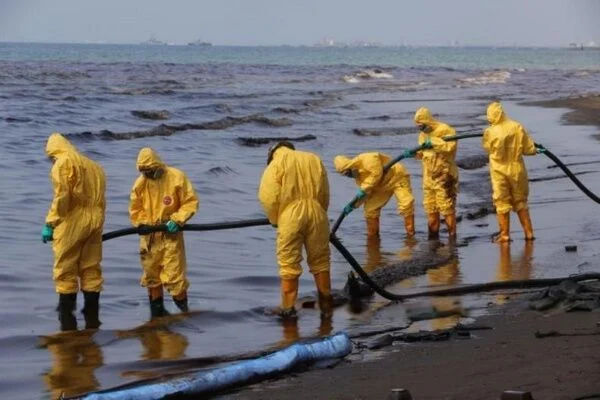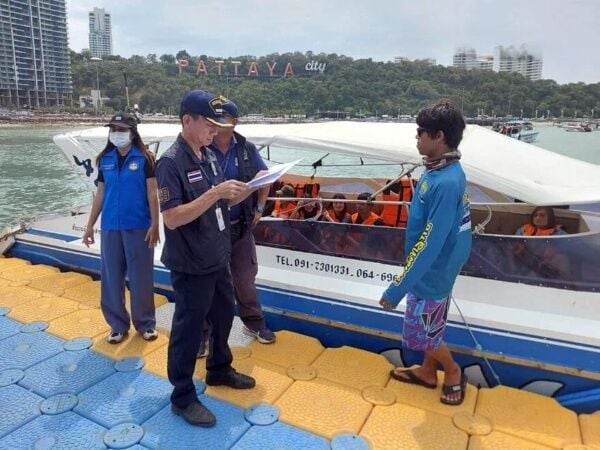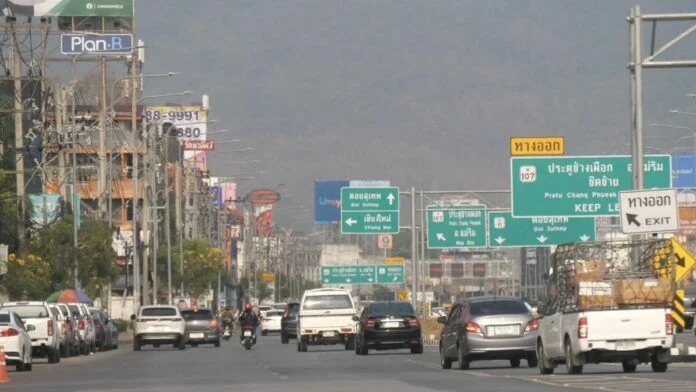Business
Surge in QR Code Transactions in Japan as Digitalization Push Gains Momentum

In Japan, a significant Surge in QR Code Transactions has been observed, driven by efforts from municipalities to promote digitalized consumption through electronic payments.
These initiatives, often conducted in collaboration with local businesses, have gained traction despite encountering resistance from certain demographics, particularly the elderly and those less familiar with digital devices.
Elderly Digital Transition
The country’s considerable elderly population, which has shown less enthusiasm for adopting electronic payment systems, has contributed to Japan’s gradual transition to cashless transactions. This trend has become more pronounced during the COVID-19 pandemic. To address this digital gap, local governments are implementing measures such as offering paper gift certificates and organizing smartphone workshops for seniors.
A notable example is the city of Tagawa in Fukuoka prefecture, known for having one of the highest proportions of elderly residents in the region. Despite this demographic challenge, local officials have been persistent in promoting their cashless payment initiatives, including the implementation of QR code programs.

Typically, these campaigns are conducted in partnership with major QR code payment system operators, with financial support sourced from regional revitalization grants provided by the central government.
QR codes, initially developed by Japanese industrial equipment manufacturer Denso Wave Inc. in 1994 for inventory tracking purposes, have since evolved into versatile tools with broader commercial applications, including contactless payment methods.
Related News: Annual 5% Reduction in Tuberculosis Rate
In Tagawa, there has been a notable increase in QR code users, reportedly rising by 30% following the introduction of the first program in October 2020. This initiative offered a 20% discount on purchases made using the payment system. Despite this surge, individuals unfamiliar with digital devices, especially many elderly individuals without smartphones, have expressed skepticism about the benefits of such programs.
Cashless payments
Cashless payments have faced initial resistance, but Tagawa and an increasing number of local governments have persisted in running similar campaigns. PayPay Corp, which initiated the program in July 2020, disclosed that 457 municipalities had either implemented QR code drives or had plans to do so.
These programs have proven beneficial for both local governments and consumers. They streamline processes by eliminating the need for issuing and printing shopping vouchers for refunds, while also enabling consumers to make purchases conveniently from home.
Efforts to transition individuals reliant on cash to cashless payments are ongoing, particularly targeting seniors who are often categorized as digitally challenged. A survey conducted by the Cabinet Office in 2023 revealed that about half of respondents aged 70 and older admitted to rarely or never using digital devices.
In response, municipalities like Tagawa have continued to issue paper-based shopping vouchers, first introduced in 2009. Additionally, cities have been organizing seminars to teach the elderly how to operate smartphones.
Mitsugu Setoguchi, a 46-year-old official from Tagawa city, suggests that educating people on smartphone usage is crucial in promoting cashless transactions.
“First and foremost, we hope to use this opportunity of having people learn about cashless payments to familiarize them with how to operate smartphones,” he stated.
Business
Rayong fishing groups sue Star Petroleum over oil spill devastation

A group of 14 individuals hailing from Rayong, 2qmate release of 50,000 liters of crude oil into the Gulf of Thailand, besmirching the shores of Rayong.
The province’s Fisheries Office reports a toll of at least 2,600 fishermen affected by this calamity. Beyond the depletion of fish stocks in the area, the contamination rendered the remaining catch unsalvageable.
Subsequent to the disaster, local fishermen have found it unfeasible to sustain themselves. Their customary fishing yields from the Rayong coastline have notably dwindled. Many have resorted to extending their maritime excursions or ceasing fishing operations entirely.
“14 Rayong residents sue SPRC over 2022 oil spill, seeking compensation for livelihood losses.”
Lamom Boonyong, president of the Pak Nam Ban Rao fishing community, elucidated that the lawsuit extends beyond the culpability of the oil spill’s perpetrator. Five additional entities stand accused of contravening environmental safeguarding statutes.
Representing diverse factions comprising over 800 members collectively, the plaintiffs aim to establish a precedent with their litigation.
Should the verdict favor their cause, it could pave the way for compensation claims by remaining members, potentially entailing a financial burden of approximately 240 million baht for the implicated company, as per Bangkok Post.
Furthermore, these groups implore governmental intervention to facilitate the restoration of the local marine ecosystem. The Civil Court is slated to review the lawsuit on May 17th.
Business
Pattaya Port Authority prepares 700 speedboats for Songkran

As the Songkran Festival looms closer, Pattaya Port Authority prepares for an influx of travellers with an initiative to ensure safety and convenience. From April 11 to 17, they are set to facilitate seamless water travel between Koh Larn and Pattaya.
To cater to the needs of both locals and tourists, the authority has orchestrated a fleet comprising 60 passenger boats and 700 speedboats. Their ambitious setup aims to handle at least 20,000 travellers daily, totalling a staggering 140,000 to 150,000 over the seven-day festival.
Ekkrach Kantharo, Director of the Regional Marine Office, Pattaya Branch, highlighted the meticulous preparations.
“With Thailand offering visa-free entry for Chinese tourists this year, there’s been a noticeable surge in visitors to Pattaya, especially those flocking to the pristine shores of Koh Larn for relaxation.”
Passenger boats, each capable of accommodating 150 travellers, will shuttle between Pattaya and Koh Larn hourly, with three to four boats scheduled based on demand. Meanwhile, speedboats will offer flexibility for private trips.
The allure of Koh Larn’s scenic beaches and crystal-clear waters has made it a top pick among tourists, driving up the demand for water travel services. Daily port activity in Pattaya has skyrocketed to over 15,000 passengers, with foreigners making up 70%, including Chinese, Russians, and Indians, while Thai nationals account for the remaining 30%.
During the Songkran festival period, the Pattaya Port Authority will set up a dedicated water convenience and public relations centre at the port. Collaborating with Pattaya City, marine police, tourist police, and rescue workers, they aim to prioritise safety.
Strict regulations will be enforced, with boat operators required to conduct thorough checks on vessel conditions and safety equipment, including life jackets and lifebuoys, reported Pattaya Mail.
Regular inspections for drugs will also be carried out to maintain a secure environment for all travellers amid the festive celebrations.
In related news, the Tourism Authority of Thailand (TAT) is anticipating a robust tourism influx from North and South America this year, with a projection of at least 1.5 million tourists – a figure that mirrors the 2019 statistics. This surge is attributed to the confluence of the Songkran celebrations and the Easter holiday in April.
Business
Chiang Mai tourism expects rebound despite hotel booking slump

Chiang Mai, once bustling with tourists, is currently facing a downturn in hotel bookings as of Wednesday.
According to La-iad Bungsrithong, advisor to the Northern Thai Hotels Association, reservations are only at 30% capacity compared to the same period last April.
Despite this gloomy scenario, there is a glimmer of hope on the horizon. La-iad anticipates that occupancy rates will rebound to 70% during the upcoming Songkran Festival.
Scheduled from April 13 to 15 in Chiang Mai, the festival is expected to draw a large number of tourists. Some areas have even designated April 1 as the kickoff for water play festivities.
In related news, Chiang Mai tourism remains optimistic about a recovery despite the current slump in hotel bookings.
Traditionally favored as a cool winter retreat, Chiang Mai has faced additional challenges, notably air pollution. La-iad expressed optimism about a potential increase in tourist numbers by April, provided that the PM2.5 issues are effectively addressed.
“Chiang Mai is currently grappling with alarming levels of air pollution.”
However, this problem extends beyond Chiang Mai, affecting the entire northern region of Thailand. The air pollution crisis significantly impacted the tourism industry in March, causing hotel occupancy rates to drop to 50% from the expected 60%, according to La-iad.
She emphasized the necessity for a comprehensive plan from the Thai government to tackle air pollution. While this might not directly affect local businesses, the contaminated air, high in PM2.5, poses significant health risks.
“The PM2.5 issue requires a nationwide approach that entails concrete and comprehensive plans from the government.”
Additionally, La-iad proposed that Chiang Mai could benefit economically and in terms of tourism with the establishment of an entertainment complex. This could potentially replace the unregulated underground gambling dens. However, she stressed the importance of stringent legal measures and regulations to mitigate any potential societal issues stemming from the casinos.
“However, stringent legal measures and regulations must be carefully implemented to prevent any societal problems arising from the casinos.”
-

 News1 year ago
News1 year agoMICE industry must prioritise people management to sustain growth
-

 Entertainment2 years ago
Entertainment2 years agoDark history to exotic delights: Cambodia and Thailand tourist strategy
-

 Entertainment2 years ago
Entertainment2 years agoJohn Legend enjoys spring break in Phuket
-

 Entertainment2 years ago
Entertainment2 years agoSiam Paragon and Bangkok Pride proudly celebrates Pride Month from May 31 – June 4, 2024
-

 Entertainment2 years ago
Entertainment2 years agoPhuket’s Tourist Case court division resumes after four-year break
-

 Fashion2 years ago
Fashion2 years agoGold prices in Thailand surge with ornaments at 37,350 baht
-

 Fashion2 years ago
Fashion2 years agoFed’s rate cut sends gold soaring past US$2,200 per ounce
-

 Fashion2 years ago
Fashion2 years agoFashion brands linked to brutal slaughter of reptiles in Thailand (video)




